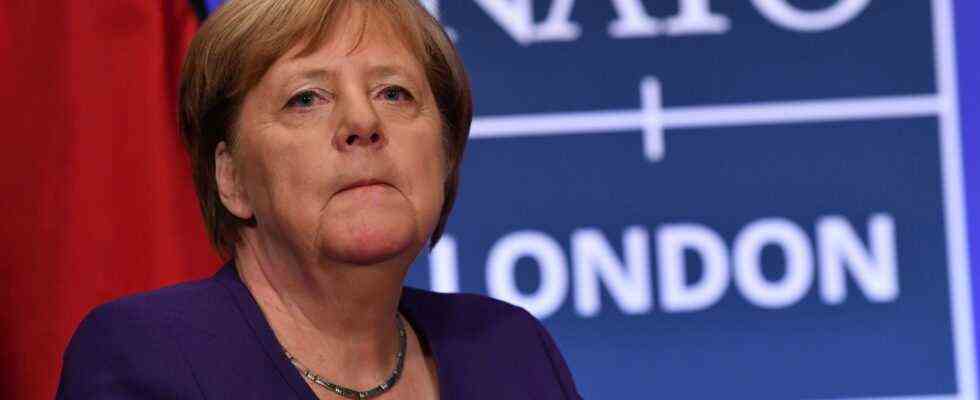Status: 08/31/2021 4:10 a.m.
The Afghanistan mission and its end have again shown the military dependence of Germany and Europe on the USA. Reality has little to do with the self-declared claim.
For the German Chancellor, appearing in a beer tent is definitely not one of her favorite pastimes. It is all the more remarkable that Angela Merkel uttered what is perhaps the most important foreign policy sentence of her 16-year term in office at a Munich festival: “The times in which we could completely rely on others are a long way off,” said the Chancellor to around 2000 beer tent guests all of Europe too. “We Europeans really have to take our fate into our own hands.”
It was the end of May 2017, and Donald Trump, a president in office in the United States, viewed Germany and the EU more as opponents than partners. But what has become of the claim that Europe should become more independent, more mature, that is, “capable of global politics”? Not that much.
Especially since, as the CDU foreign politician Norbert Röttgen puts it, after the “complete failure” of the West in Afghanistan, the credibility of the international community as a whole, and thus also of Europe, is at stake.
A touch of independence
It is true that the first tentative steps towards more European independence are recognizable: with a European defense fund and stronger cooperation on military projects (PESCO), the EU is to become more capable of military action. But just like with the planned German-French-Spanish fighter jet (FCAS), the effects are unlikely to be felt until years or decades later.
At the same time, Germany and the Chancellor were trying to defuse conflicts in which the United States played a minor role: the war in eastern Ukraine, the civil war in Libya – both with the help of diplomacy – or the armed conflict in Mali, here with the help of what is now the largest ongoing Bundeswehr mission.
Passed out when in doubt
The track record to date, however, has been mixed at best, even if it is expressed benevolently. And the dispute with US President Trump over the nuclear deal with Iran showed how powerless Germany and the EU are when the big brother on the other side of the Atlantic works against European interests.
However, no example shows the dependence on the USA more clearly than the example of Afghanistan: When US President Joe Biden announced the withdrawal of all troops on September 11, it was clear that the Bundeswehr would also have to leave Afghanistan by then at the latest. When the USA announced the end of the airlift from Kabul airport on August 31, it was clear that the Bundeswehr would have to suspend its evacuation flights a few days in advance.
Now one could ask whether the Europeans alone should not be able to guarantee the security of such an airport. The sober truth is: They would hardly be that short-term. And even if they did, there was no political will. It is true that both the EU with the (never before deployed) “Battle Groups” and NATO with the “spearhead” have thousands of strong, rapid reaction troops at their disposal. But there were no serious demands to fall back on either of the two.
Merkel, the brakeman?
But why is it that Germany and Europe are so hopelessly lagging behind their own geopolitical claims? Despite her beer tent sentence from 2017, the Chancellor has always slowed down efforts to put Europe on its own militarily, too. With his ambitious plans for more “strategic autonomy”, France’s President Emmanuel Macron had to wait a long time for an answer from Berlin and was then more or less rejected. It is well known that the Chancellor tends to rely on “strategic patience” when fighting the crisis. It is difficult to get along with “strategic autonomy” or visions that could lead to more weight in foreign policy.
At the same time, the fierce domestic political debates about defense spending and the equipment of the Bundeswehr show how little agreement there is on this topic: The co-ruling party SPD is not only struggling with the two percent target of NATO, which it also agreed to. The acquisition of armed drones for the Bundeswehr, which has been discussed for a decade now, has also recently caused a dispute within the coalition and is now on hold for the time being.
And finally, with Biden’s election as US president, the Europeans initially seemed relieved of the burden of quickly having to stand on their own feet in terms of security policy. In the end, Biden in particular, with his decisions on the withdrawal of Afghanistan based on US interests, simply presented the Europeans with a fait accompli. The discussion about whether and when Europe will really take its fate “into its own hands” and Germany will play a significant role in this, which lives up to its self-declared claim, will continue. It is one of the foreign and security policy construction sites that Angela Merkel leaves to her successors.

